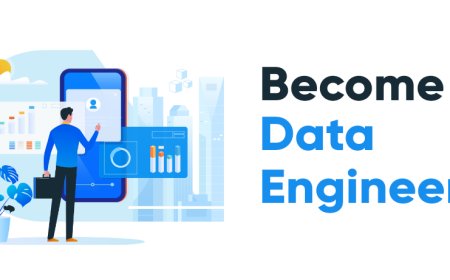Applications of Data Engineering : the Power of Data
Discover the diverse applications of data engineering and how it unlocks the true potential of data. Explore the power of data engineering

The applications of data engineering span a vast array of industries, revolutionizing the way organizations operate and make informed decisions. At its core, data engineering involves the collection, processing, and management of data, transforming raw information into actionable insights. This intricate process forms the backbone of numerous sectors, from business and healthcare to entertainment and finance. As we delve deeper into the applications of data engineering, we discover its profound influence in shaping the modern landscape, fostering innovation, and propelling industries toward greater efficiency and success.
Foundational Concepts of Data Engineering
Data engineering forms the bedrock of efficient data utilization, beginning with the crucial stages of data collection and ingestion. This involves identifying diverse sources of data, ranging from structured databases to unstructured streams, and orchestrating their flow through well-structured data pipelines and Extract, Transform, Load (ETL) processes. These pipelines act as conduits for data movement, transformation, and enrichment, ensuring that data becomes usable and insightful.
Once collected and processed, the management of data becomes paramount. Traditionally, relational databases have held a central role in storing structured data, offering the advantages of structured querying and well-defined schemas. However, the surge in unstructured and semi-structured data led to the emergence of NoSQL databases, optimized for flexibility and scalability. Additionally, data lakes and warehouses have become indispensable tools for storing vast amounts of raw and processed data, enabling advanced analytics and big data processing.
Applications in Business and Decision-Making
Business and decision-making, the integration of advanced technologies has given rise to a multitude of applications that enhance efficiency, accuracy, and overall strategic prowess. This section explores some key applications within this domain.
Business Intelligence and Analytics:
In the ever-evolving landscape of business, data has become an invaluable asset. Leveraging this data to gain actionable insights is paramount for success. One way this is achieved is through business intelligence and analytics. Firstly, businesses can harness the power of data-driven insights to make informed decisions. By analyzing patterns and trends in historical and real-time data, organizations can identify opportunities for growth, cost optimization, and operational improvements. Secondly, real-time reporting provides dynamic snapshots of a company's performance, enabling stakeholders to stay up-to-date with critical metrics and react swiftly to changing conditions.
Customer Relationship Management (CRM):
Building strong and lasting relationships with customers is at the heart of business success. Advanced technologies have revolutionized how businesses manage these relationships. Personalization and targeted marketing are prominent examples. By analyzing customer data, such as purchase history and browsing behavior, businesses can tailor marketing efforts to individual preferences, increasing the likelihood of engagement and conversions. Moreover, churn prediction and customer retention tools utilize predictive algorithms to identify customers at risk of leaving and take proactive measures to retain their loyalty, thus safeguarding revenue streams.
Supply Chain Optimization:
In an interconnected global marketplace, the efficiency of supply chain operations has a direct impact on a company's bottom line. Technology plays a pivotal role in optimizing these processes. Demand forecasting employs sophisticated algorithms to predict future customer demand, allowing businesses to adjust their production and inventory levels accordingly, minimizing waste and shortages. Similarly, inventory management benefits from real-time data and analytics, enabling companies to strike a delicate balance between carrying costs and product availability, thus enhancing overall operational efficiency.
Data Engineering in Healthcare
Electronic Health Records: Electronic health records (EHRs) have revolutionized the healthcare industry by digitizing and centralizing patient information. These digital records contain comprehensive medical histories, treatment plans, diagnoses, and test results, allowing for efficient and accurate patient care. EHRs enhance communication among healthcare providers, reduce errors, and enable data-driven decision-making. However, concerns about patient privacy and data security remain significant challenges in the widespread adoption and use of EHR systems.
Medical Research and Drug Development: Data engineering plays a crucial role in advancing medical research and drug development. By collecting and analyzing vast amounts of patient data, researchers can identify patterns, correlations, and potential insights that can lead to new treatments and therapies. Data engineering facilitates the integration of diverse data sources, such as genomic information, clinical trial results, and real-world patient outcomes. This integration accelerates the discovery of biomarkers, the optimization of clinical trial designs, and the identification of potential drug candidates, ultimately expediting the entire research and development process.
Data Engineering in Smart Cities
The field of Data Engineering plays a pivotal role in shaping the landscape of Smart Cities. This multidimensional role encompasses various aspects, two of which stand out prominently: Urban Data Collection and Urban Planning & Infrastructure Optimization.
Urban Data Collection forms the foundation of informed decision-making in Smart Cities. Through an intricate web of sensors, devices, and data sources scattered across urban environments, an extensive array of data is gathered in real-time. This data encompasses a diverse range of variables, including but not limited to, traffic flow, air quality, energy consumption, and waste management. The aggregation of such data grants city administrators invaluable insights into the pulse of the city, enabling them to grasp patterns, trends, and potential challenges. Consequently, this knowledge serves as the bedrock for evidence-based policies, efficient resource allocation, and the overall enhancement of urban living conditions.
Complementing this data-driven foundation, Urban Planning and Infrastructure Optimization takes center stage. Armed with the wealth of data, city planners and engineers are empowered to craft smarter, more responsive urban landscapes. By harnessing advanced analytics and simulation techniques, they can model various scenarios to predict the impact of new infrastructure projects or policy changes. This proactive approach aids in the prevention of urban congestion, optimized energy distribution, and streamlined public services. Furthermore, it facilitates the integration of sustainable practices and the reduction of the city's ecological footprint, contributing to the long-term well-being of both inhabitants and the environment.
Data Engineering in Entertainment and Media
Content Recommendation Systems in Entertainment and Media:
Content recommendation systems have become integral to the entertainment and media industry, transforming how content is delivered and consumed. Leveraging advanced algorithms and machine learning techniques, these systems analyze user preferences, viewing history, and demographic data to provide personalized recommendations. By understanding individual tastes, these systems enhance user engagement, prolong viewing sessions, and drive content discovery. Whether suggesting movies, TV shows, music, or articles, recommendation systems optimize user satisfaction while also aiding platforms in tailoring their content catalog to match diverse audience interests.
Sentiment Analysis and Audience Feedback in Entertainment and Media:
Sentiment analysis plays a pivotal role in shaping content strategies within the entertainment and media sector. By employing natural language processing, platforms can extract insights from audience feedback, reviews, and social media conversations. This process provides valuable information about audience opinions, emotional responses, and preferences, enabling creators and producers to refine their offerings. Sentiment analysis not only assists in gauging the success of releases but also aids in identifying areas of improvement, thereby fostering a more responsive and adaptive content ecosystem that resonates better with the audience.
Data Engineering in Finance
Fraud Detection and Prevention in Data Engineering for Finance involves implementing robust systems to safeguard against fraudulent activities. Anomaly detection techniques are employed to identify unusual patterns or behaviors that deviate from the norm, signaling potential fraud. Additionally, transaction monitoring plays a critical role by continuously scrutinizing financial transactions, assessing their legitimacy, and raising alerts when suspicious activities are detected. These data-driven approaches enable financial institutions to proactively mitigate risks and protect both themselves and their customers.
Algorithmic Trading is a sophisticated application of data engineering in the finance sector. Real-time market data processing forms the foundation, as vast volumes of information are analyzed instantly to inform trading decisions. Predictive modeling is another key component, leveraging historical data to create algorithms that forecast market trends. These models aid traders in making informed choices, optimizing their strategies, and capitalizing on fleeting market opportunities. By harnessing data effectively, algorithmic trading enhances trading efficiency and potentially generates more favorable outcomes.
Ethical and Legal Considerations
Data Privacy and Security
In the realm of data science and technology, upholding data privacy and security is of paramount importance. The compliance with regulations such as the General Data Protection Regulation (GDPR) and the California Consumer Privacy Act (CCPA) is essential. These regulations set forth guidelines for the collection, processing, and storage of personal data to ensure individuals' rights to privacy are respected. Organizations must adopt measures that enable them to handle personal information transparently, giving individuals control over their data while implementing proper consent mechanisms. Failure to comply with these regulations can result in severe legal consequences and damage to the organization's reputation.
Bias and Fairness in Data Processing
Algorithmic biases present a critical concern in data processing, as they can perpetuate and amplify existing societal biases. Addressing algorithmic biases requires a multi-faceted approach. This involves meticulous examination of training data to identify potential biases present in the data itself. Additionally, it necessitates fine-tuning algorithms to ensure they do not disproportionately favor or discriminate against certain groups. Regular audits of models for fairness and bias, along with transparency in the decision-making process, are vital to building trust and mitigating unintended consequences.
Future Trends and Innovations
AI and Machine Learning Integration
The integration of AI and machine learning continues to drive remarkable advancements across various industries. Two key areas that stand out are automated data processing and predictive analytics. Automated data processing involves the use of AI algorithms to streamline the handling of vast datasets. This not only accelerates the data processing workflow but also reduces the risk of human errors. By automating tasks such as data cleaning, transformation, and categorization, organizations can allocate their human resources to more complex and creative tasks.
Predictive analytics, on the other hand, has undergone significant advancements thanks to AI and machine learning. Traditional statistical methods for predicting trends and outcomes have evolved into sophisticated models that can identify subtle patterns within data. These models can now consider a multitude of variables and their complex interactions to make accurate predictions. Businesses are leveraging this capability to anticipate customer behaviors, market trends, and even potential equipment failures.
Edge Computing and Real-time Processing
The rise of edge computing marks a paradigm shift in how data is handled and processed. Edge computing involves processing data closer to its source, whether that's a sensor, device, or machine, rather than sending all data to a centralized cloud server. This approach offers several benefits, such as reduced latency and enhanced responsiveness. By processing data locally, critical insights can be generated in real-time, enabling immediate action to be taken. This is particularly valuable in applications where even a slight delay could have significant consequences, such as autonomous vehicles or industrial automation.
Furthermore, edge computing alleviates the strain on centralized cloud infrastructure by offloading a portion of data processing to the edge devices. This is particularly important as the Internet of Things (IoT) ecosystem continues to grow, generating massive amounts of data. Edge computing ensures that only relevant data is transmitted to the cloud, reducing bandwidth usage and associated costs.
The field of data engineering encompasses a wide array of applications that have transformed various sectors. From enabling efficient data storage and retrieval to powering advanced analytics and machine learning, data engineering's significance is undeniable. Moreover, its role continues to evolve, driving innovation and reshaping industries by harnessing the power of data. However, amidst this rapid progress, it is crucial to highlight the importance of responsible and ethical data practices. As we stride forward, maintaining a focus on sustainability and ethical considerations will be vital to ensure that the benefits of data engineering contribute positively to our future.










































